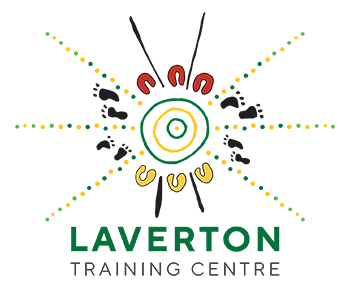About Us
Australian Potash Limited congratulates LTC General Manager Mac Jensen on the Order of Australia Medal received in the 2022 Queen's Birthday Honours List in recognition of his 35 years' service to indigenous Australians.
The Laverton Training Centre (LTC) is an initiative of Australian Potash Limited, with support from traditional owners, the Departments of Education, Training and Workforce Development, and Biodiversity, Conservation and Attractions, the Department of Primary Industries and Regional Development (DPIRD) alongside the Goldfields-Esperance Development Commission (GEDC), the Shire of Laverton and broader north-eastern Goldfield’s industry. The Centre commenced operations in March 2022, after extensive refurbishment works to premises located in Laverton, Western Australia.
The LTC coordinates a remote training program specifically tailored to working with disadvantaged people who endure low literacy and numeracy levels, intergenerational welfare dependence and trauma, generally poor health, and little or no forms of formal identification; all of which are barriers to employment. The Centre provides remote access to nationally accredited vocational training and creates opportunities for local Aboriginal people to be trained into local employment through increasing vocational skill sets.
The LTC training ethos is modelled on the highly successful Martu-ku Yiwarra Training Centre in Wiluna, a unique four-year pilot remote Aboriginal vocational training program which was funded by local employers, overseen by Martu Elders. Building on remote Aboriginal people’s strong connection to family, culture and country, maintenance of cultural obligations are a priority, engendering better educational and economic outcomes. The LTC has structured the training environment and programs to ensure cultural connections are maintained; ie. training that recognises, respects and is responsive to remote Aboriginal Law/lore and culture. Further to this, the LTC will provide advice and mentoring to regional employers to assist them to engage and employ a remote Aboriginal workforce.
The LTC will employ a strength-based training approach which allows students to gain confidence in themselves and the training, and then continue into more advanced programs that meet their aspirations in local and regional employment. This approach, employed over four years in Wiluna, resulted in high retention rates, high self-confidence, and the ability to create generational change, and led directly to a range of significant local employment outcomes for previously long-term unemployed students.
The LTC has secured the resources, regional expertise and training consistency of Central Regional TAFE in Kalgoorlie (CRTAFE) as their registered training organisation. CRTAFE deliver nationally accredited vocational training, award certificates of attainment, and successfully partnered with the Wiluna project over the four year pilot program. This partnership also facilitates state government involvement, and the benefits of the leverage this brings to the project. Nationally accredited training units and delivery dates are in place for 2022.
In addition to local Aboriginal people’s participation, the LTC has facilitated the participation of Aboriginal Ranger programs based in Cosmo Newberry, Warburton, Wiluna (Birriliburu and MKK), Meekatharra, Leinster, Leonora and Tjuntjuntjara. Kalgoorlie-based remote area Aboriginal Rangers will also attend some of the courses offered at the LTC.
Much of the vocational training provides community benefit, including automotive and mechanical training to enable mobility to meet family and cultural obligations and short courses to enable community and Shire projects (eg. chainsaws, 4WD operations, first aid training, weed spraying and chemical storage and use).
The LTC has and will continue to consult with stakeholders, local industry and employers to determine authentic, relevant and meaningful employment pathways. This includes local employers being made more aware of the impact of disadvantage on remote Aboriginal students, the limitations this imposes on access to nationally accredited vocational and the competing family and cultural obligations which create barriers to employment.
On more advanced training and employment pathways (eg. road work and civil construction projects), students can be organised into cohesive teams for further training and employment. This involves training a larger group than required for a specific remote project, which gives the identically trained team the depth to accommodate team members being able to step away and replaced when required for important family and cultural obligations. This enhances employment opportunities and benefits employers, as cohesive teams (eg. Aboriginal ranger teams and road crews) can train and work together. This approach keeps families together on country, and ensures that lore, language, and culture remains strong.
The location of the LTC in Laverton ensures the sustainability of the program. Laverton is centrally located in the northern Goldfields, easily accessible to Kalgoorlie (where the training is designed and resourced) and facilitates significantly improved access to many remote Aboriginal communities enduring high unemployment and lack of entry opportunities into the labour market.
The LTC is a registered charity (Public Benevolent Institution) with the Australian Charities and Not-for-Profits Commission, and a deductible gift recipient with the Australian Taxation Office to enable tax deductions for donations to be secured by industry partners.

